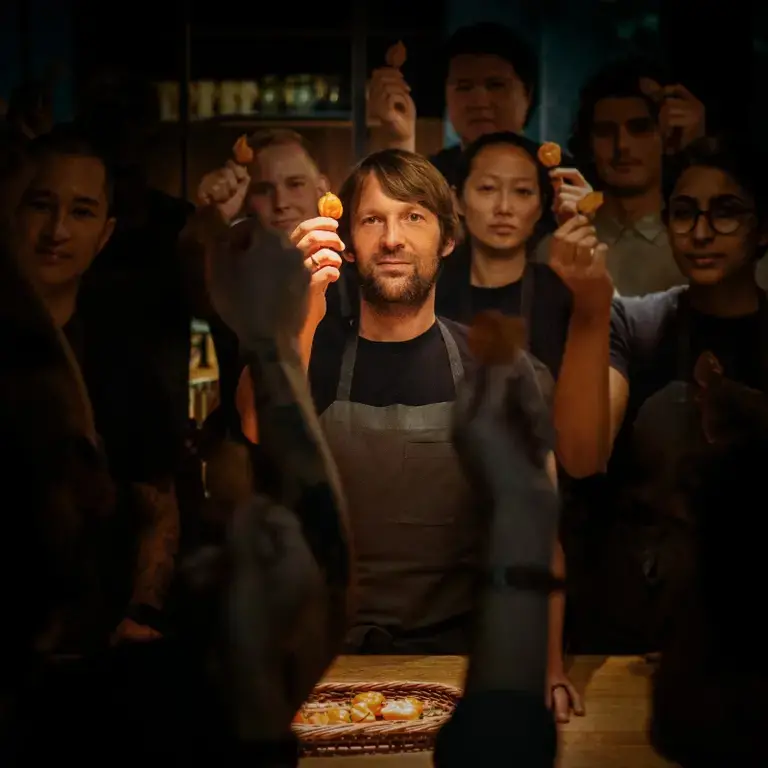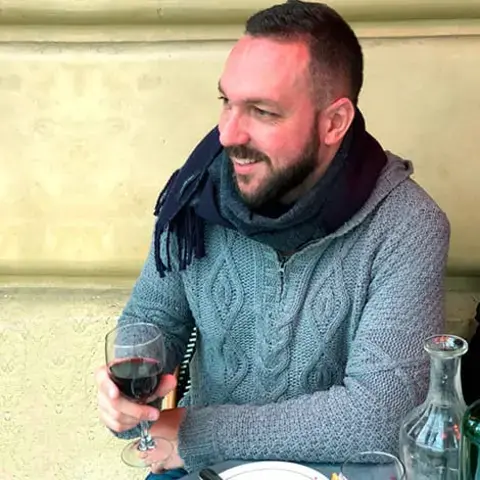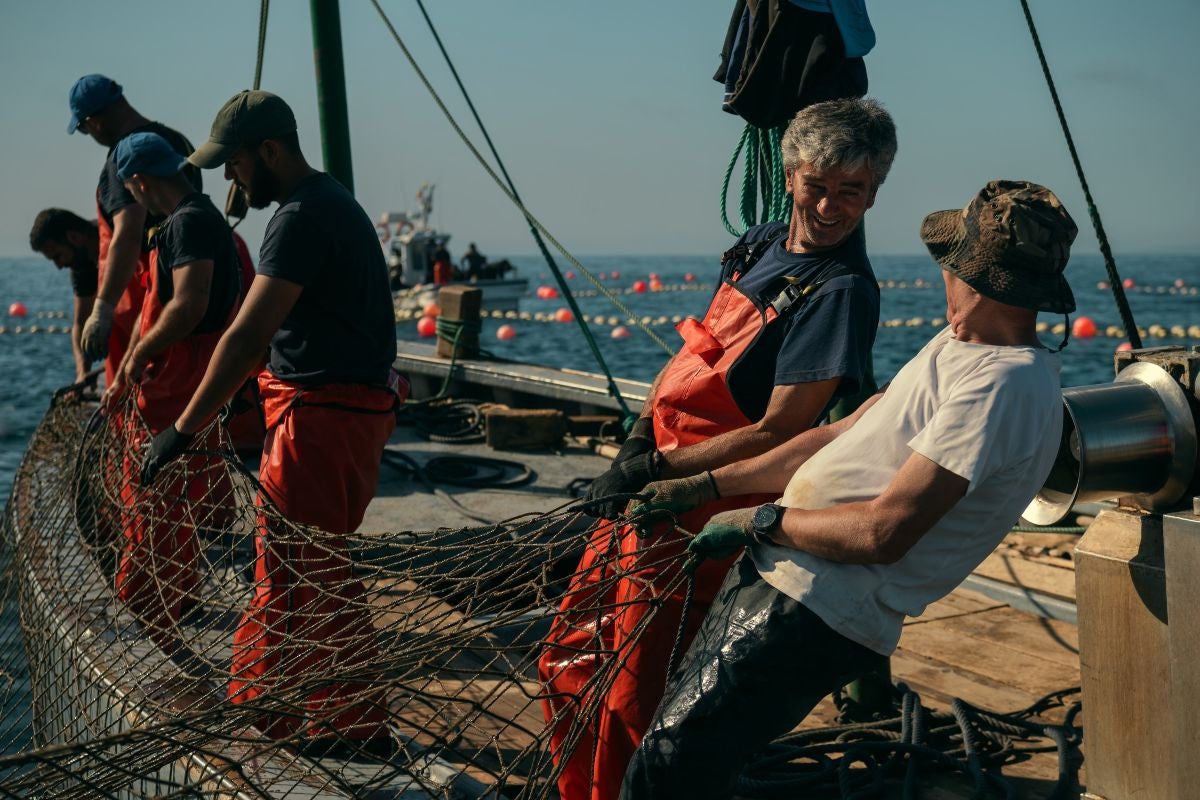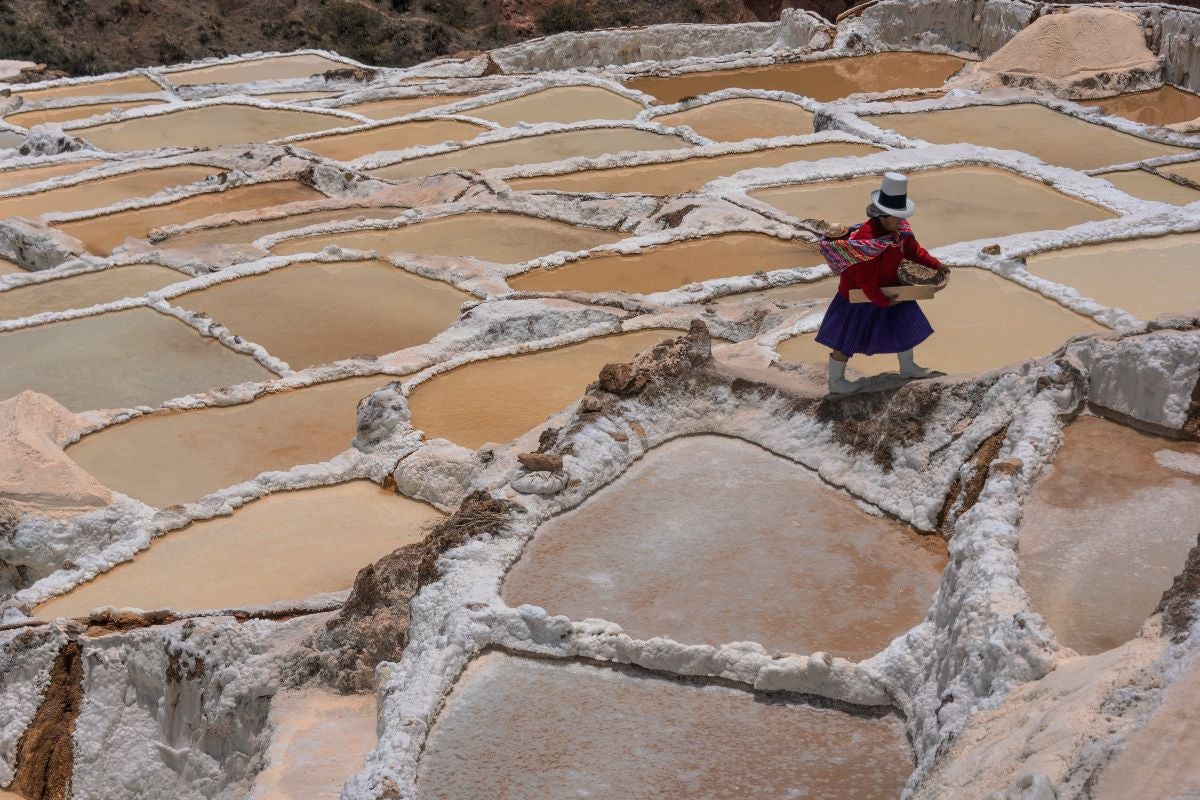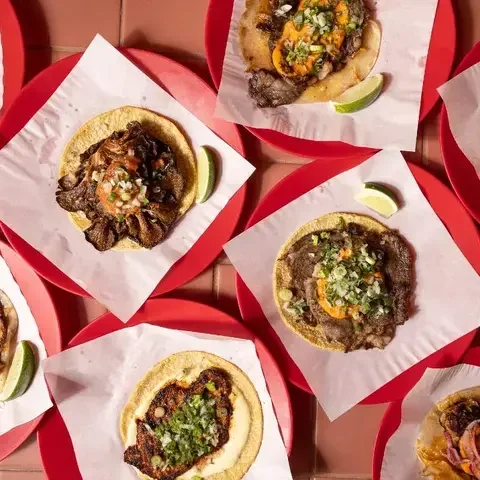It took more than 10 years—and a pandemic—to bring an immersive eight-episode series journeying into the world of everyday ingredients to life. The wait will be over on June 19, when the new original Apple TV+ docuseries premieres on the streaming platform globally. Omnivore features the voice (and brief presence) of Noma chef René Redzepi, who can now see his dream of having his own TV show realized. “I was invited to go on TV a few times, but I was never convinced by the idea,” says Redzepi on a Zoom call from his test kitchen in Copenhagen.
“One day, I started thinking about what it would be like if I developed a series. What came to mind were the great nature documentaries I loved as a child—and still do today—with the calming, soothing, and inspirational voice of David Attenborough. And I thought: Could we have a food show with the scope, dedication, and care that Planet Earth has?” he recalls. The idea for the series began to take shape around 2010, but it wasn't until the pandemic that the project gained momentum. Redzepi invited writer and Emmy-winning executive producer Matt Goulding, of Anthony Bourdain’s Parts Unknown, to join the project, and after four years, it finally came to fruition.
